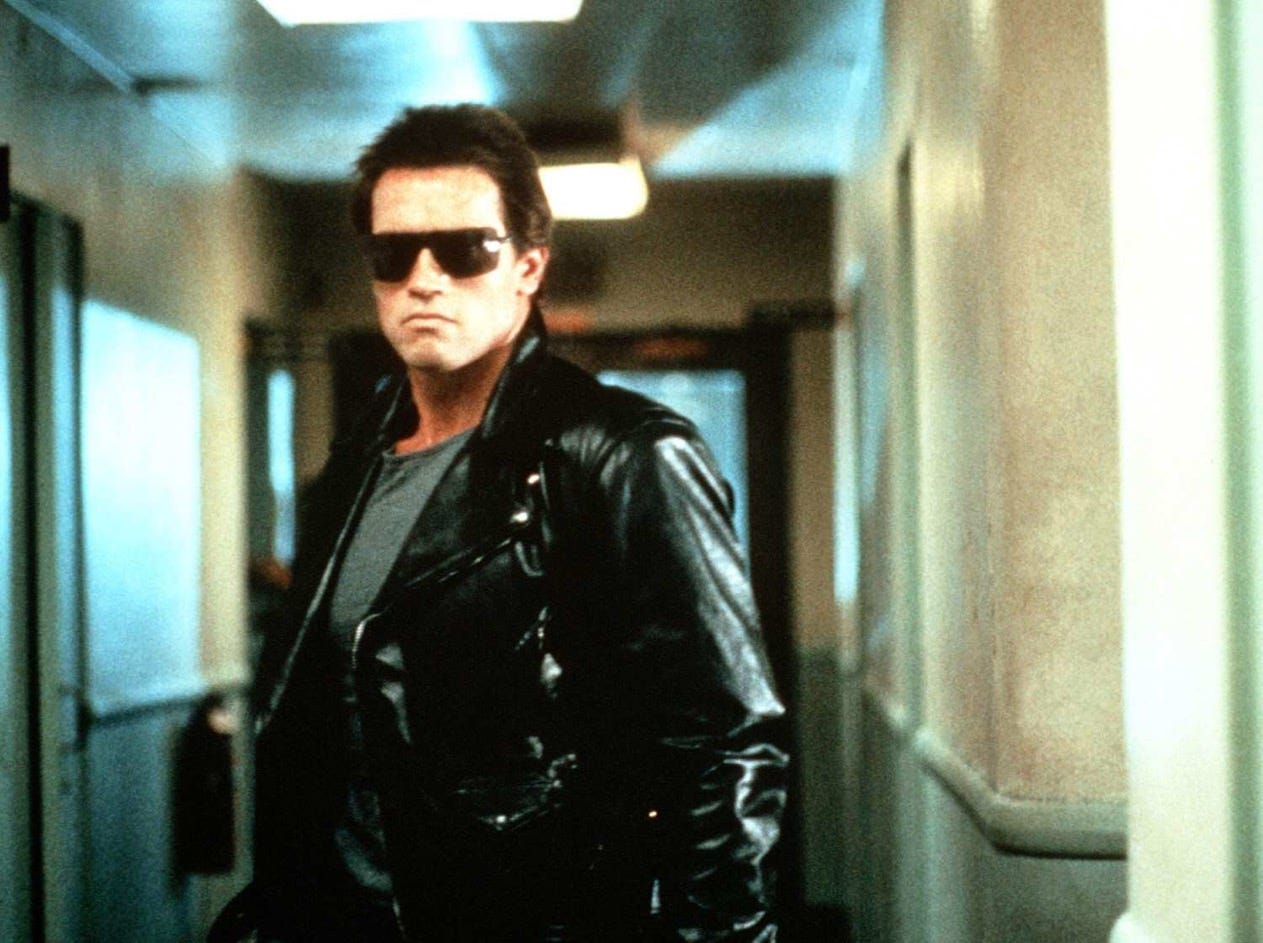#23 From the Twitter archives, parts 8A and B: The Terminator
Notes on the first film, plus some further thoughts on how the franchise represents the postmodern condition.
Part A
Underground
If 1984’s The Terminator has a political subtext it is perhaps the expression of a deep unease about Reagan’s hawkish approach to the reheated Cold War. But by James Cameron’s later standards this subtext is postively subterranean. Consider Avatar. In contrast to the heavy-handed polemical approach he would take with his 2009 film, with this first feature the director wisely chose not to shovel politics down the viewer’s throat. In fact The Terminator is pretty ambiguous. The film isn’t simply anti-technology, since we learn the surviving remnants of humanity have smashed Skynet in the post-nuclear future. Presumably their high-tech future will be bright.
Nice night for a walk
The film is one of slow reveals and defied expectations. Take the scene where a naked Arnold encounters the delinquent punks, the latter wielding chains and flick-knives. Rising crime has conditioned us to fear these types. Despite his muscles, things look bad for the naked fella.
Goblinesque
One of the most haunting sequences for me has always been Reese’s night arrival in ‘84, followed by him fleeing from the police in the alley into the empty department store. Here the synth score is reminiscent of the electronic music of John Carpenter, Goblin and Fabio Frizzi—those unnerving scores that enhanced many a horror or low-budget thriller in the late 70s and early 80s. It was the era of the soundtrack avant-garde. Arriving toward the end of that era, Brad Fiedel’s similarly abrasive and weird music for The Terminator works superbly in the ‘Reese chased’ scene, accentuating the strangeness and alienation.
Posthuman
Something the figure of the cyborg Terminator taps into is the fear of people becoming machinelike, emotionless, dehumanised—while still retaining a normal outward appearance. A theme in science fiction cinema since at least Invasion of the Body Snatchers (1956), one which became more pronounced in the genre films of the late 70s and the 80s.
In cells
One thing that’s always struck me is Reese’s incel (or volcel?) status. He remained chaste and pledged himself to a woman he’d never met, in whose defence he finally sacrifices his life. The archetypal Christian knight: he wouldn’t be out of place at Arthur’s Round Table.
A storm blowing from Paradise
If John Connor is the Messiah, then Skynet is Herod, acting with foreknowledge in an attempt to kill him before he becomes a threat (before he’s even conceived). And what of the nuclear war and the battle with the machines? Echoes of the Last Judgment. Survivors as the elect, chosen to enter paradise.
Part B
Unresolved
The first two Terminator films and the postmodern condition. A question neither film definitively answers is whether the course of history can really be altered by someone acting with foreknowledge. Skynet seems to think so, but who’s to say it’s correct?
Wheels of fate
OIn the first film there’s never any question of Reese and Sarah attempting to stop the apocalypse from happening. The impression left by Reese’s account is that the forces that’ll bring it about dwarf them so much it would be futile to even try. The film ends on a note of Stoic fatalism.
Paranoia and paradox
“A person could go crazy thinking about this.” Sarah’s metaphysical dilemma, merely touched on in The Terminator, will become a dominant theme in Terminator 2. It’s the kind of poetic evocation of ontological uncertainty that makes science fiction (or rather made science fiction—it’s practically disappeared as a significant genre) the fictional mode par excellence of postmodernity.
Ground zero
In Terminator 2 Sarah does seem to have become genuinely unbalanced to some degree. Both her knowledge of the future war and the thought she might be able to stop it have brought her to this. The postmodern condition is one of chronic ontological uncertainty—where is the real, where the true?











